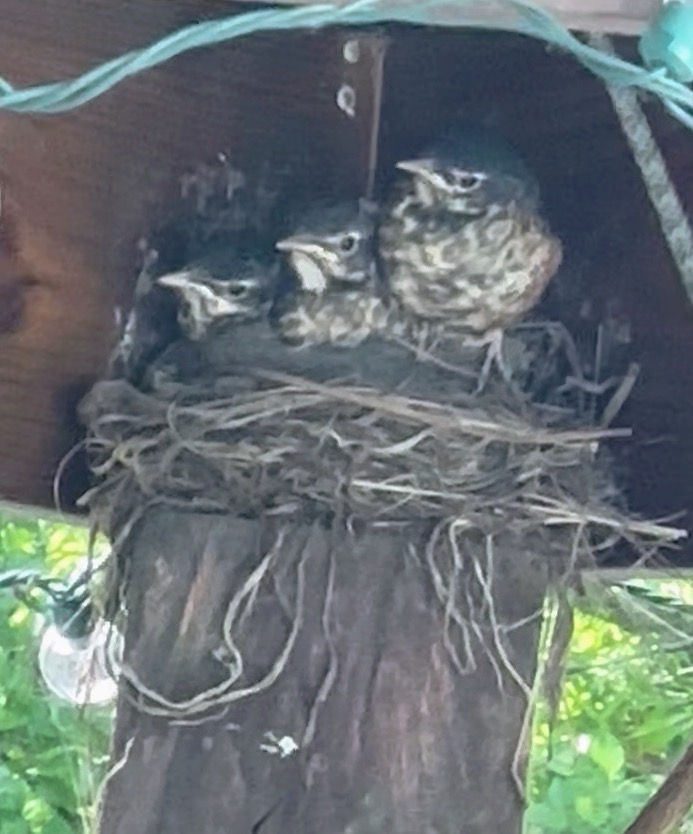Taking the Road Not Taken
- Rachel Wondergem
- Jan 13, 2022
- 3 min read

Snowy nights are filled with serene beauty and thus are magical times to walk my dogs. I took a photo during such a night, and if you look closely at it, you'll notice how my two dogs take very different approaches to the new snow.
In the foreground is the dignified gentleman, with his salt and pepper coat, who canters cheerfully in existing tracks. I can almost hear him thinking, "I walk smarter, not harder." Then there is the young Brittney, with his white and brown coat, who simply runs wild, kicking up plumes of snow. He has no thought but to unlock the energy and joy within his sleek body. Each approach has merit, but I vastly prefer the Brittney's, if I'm honest.
That preference reminds me of a famous story where a traveler stands at a fork in the road and must choose which way to go. The tale concludes with the traveler's musing that "Two roads diverged in a wood and I— I took the one less traveled by, and that has made all the difference."
Those words sound like an endorsement of bold journeys into unchartered territory. But a closer look at Robert Frost's poem, The Road Not Taken, reveals a very different meaning. Let's pick up the story at the fork, where the traveler stands with two roads in front of him. The spot has him ill at ease because he must choose between two options that he describes as "about the same" and "equally" untraveled.
Wait a minute. Didn't the traveler report that one of the roads was less traveled? What's going on here?
The traveler looks down one path for quite a while and then abruptly takes the other, perhaps on impulse, and at that moment, the traveler makes a wise prediction. In time, his memory of the event will change. Instead of accurately recalling his indecision over two equal options, he will remember boldly choosing to take the road less traveled, or in the words of the old Star Trek show, "to boldly go where no man has gone before."
Frost's genius was having us consider the same situation seen through two different lenses — one of self-reflection and one of self-delusion. First, we find a traveler candidly reflecting on an uncomfortable incident. Then we hear a delusional story the traveler wishes was true.
Most people see through the second lens and remember the delusional story, missing the pivotal irony of the poem. In fact, Frost's friend, the one who inspired the poem, missed its humor. Why is this? Why do we hear Frost encouraging us to take the road less traveled?
The American ideals of hard work, rugged individualism, and loud voices probably contribute to this bias. As an introvert, I sense this strong current and swim upstream against it, but that brings me back to my dogs in the snow. Even as I appreciate the older gentleman's style, which is in many ways more like my own, I applaud the Brittney's, despite his wildness. It's like I believe there should be a "better" way even when I know their approaches are simply suited to their different personalities and ages.
So, can we say there is a "better" path? Well, I think we need a better question: What is your purpose, the part you want to play, in this rich reality?
Consider all the choices you will make today, like…what to eat, wear, do, be, and dream. Each is a fork in the road, a road built by an infinite number of events and choices, stretching back millions of years. There you will stand until you choose a path, and that choice requires you to forgo an infinite number of options you must leave unexplored. Once you chose, your path will be influenced by countless other forces, most of which you will never see, all of which will take you to places you couldn't not have guessed.
Awareness of this truth can be haunting if we insist that we're on the "better" path after making the "better" choice, like Frost's traveler, who must create an illusion to console himself that he would never know what was the "better" choice. This self-delusion comes at a very steep cost. We miss seeing the richness of reality.
There's another way to view our choices and their consequences. Each makes an essential contributions to a beautiful, infinite, rich story and, in so doing, we become a part of its intricate web. Wisdom teaches us to pursue our meaning and place in within it, humbled, not haunted, by realty's richness…
..which doesn't require we always take the road less traveled.



Comments